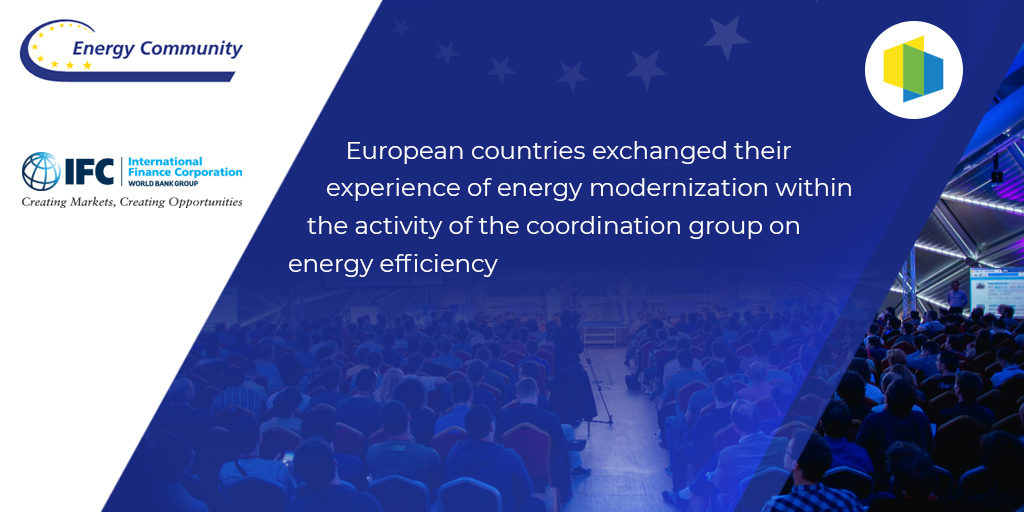The 26th Energy Efficiency Coordination Group (EECG) meeting and workshop was held on 23-24 June 2021. The meeting was arranged by the Energy Community and devoted to discussing the issues of improving energy efficiency in the residential sector and exchange of experience in this area between countries.
The participants from the Czech Republic, Croatia, Austria and Ukraine represented recent developments in energy efficiency sphere in the EU and shared their own experience in the reconstruction of residential buildings.
During the workshop Yulia Holovatiuk-Ungureanu, Director of the Energy Efficiency Fund, and Mai Nguyen, Head of the Energy Efficiency for Ukraine Program at the International Finance Corporation (IFC, World Bank Group), spoke about the changes in the energy efficiency sphere in Ukraine that happened due to the setting up and functioning of the Energy Efficiency Fund.
“The cost of the complex projects for the renovation of multistorey buildings in Ukraine, implemented by the Energy Efficiency Fund, exceeds UAH 5,4 billion. Today, 62 thousand Ukrainian families participated at the Energodim program and this number is now growing. However, only market competition can accelerate the growth of the number of projects for the modernization of buildings, increase the level of construction works and the quality of project implementation in general,” admitted Yulia Holovatiuk-Ungureanu.
According to Ms Holovatiuk-Ungureanu, to further expand the energy modernization projects of multifamily buildings across the country, it is necessary to continue the development of banking products available to most HOAs which require additional financing. It is also crucial that the energy efficiency reform in Ukraine will remain among the top priorities for the authorities and international partners.
Ms Nguyen spoke about the IFC’s role in promoting and improving the energy efficiency of Ukraine’s housing sector, in particular about the Energy Efficiency Fund project implementing in partnership with the European Union and Germany.
Thus, IFC supported the creation of the EE Fund and helped to design the operational model of the Fund, corporate governance and the Energodim program. IFC currently administers the Multi-Donor Trust Fund, from which the HOAs receive grants under the Energodim program in equal parts with the EE Fund.
In addition, IFC engaged with partner banks to adjust their lending products and services for HOAs under the Energodim program. IFC supports co-owners through the network of thirty regional consultants across all the regions of Ukraine which assist them in the process of housing renovation.
The Energy Efficiency Coordination Group meeting was held online and attended by the representatives of the Energy Community Secretariate, Ministry of Industry and Trade of Czech Republic, the European Commission, the European Bank for Reconstruction and Development (EBRD), KfW, the World Bank.
The participants discussed the roadmap for climate goals until 2030, building certification issues, existing programs, as well as investments in energy efficiency and renewable energy sources.
In particular, Croatia and the Czech Republic presented the key aspects and results of the implementation of their own energy modernization programs for multistorey buildings. Thus, in Croatia in the period of 2014-2020, the total energy savings made 56.65% and the CO2 emissions were reduced to 63.5 million tons due to implementing of energy efficiency measures.
